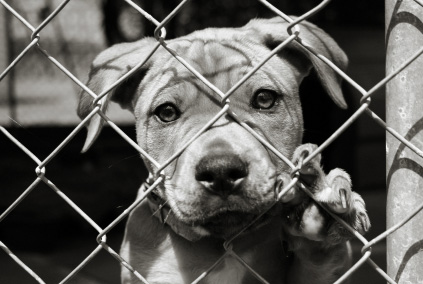Rescue Dog Syndrome
 Throughout my career as a dog trainer, I ask new clients to tell me about their dog and what are the issues they are hoping to confront and goals they are wanting to accomplish. A vast majority automatically start out with “Well, he/she is a rescue dog…”
Throughout my career as a dog trainer, I ask new clients to tell me about their dog and what are the issues they are hoping to confront and goals they are wanting to accomplish. A vast majority automatically start out with “Well, he/she is a rescue dog…”
So you have a ‘rescue dog’ right? You rescued them from a shelter or a bad situation and you now want to show them just how wonderful life can be…That’s great! I commend you for giving them room in your life and not paying attention to the hype that surrounds buying a dog from a breeder. There needs to be more people like YOU in the world. There are thousands of dogs in the shelters that are looked past and ignored because of a stigma that comes with getting a dog that hasn’t had the picture perfect past. Most dogs are in a shelter simply because they were not given the structure and training necessary to be a happy and “well behaved” pet.
Now its time to move past that opening line and that mentality. The life that your dog has had in their past may have taught them some bad habits, but now we are here to teach them better habits and provide the structure and provide the guidance they were lacking before you came along. Dogs are present minded. They do not need the pity that comes with the ‘rescue dog syndrome’ mindset. They need the stability and structure that we will provide for them to be able to move forward and forget the past that has brought them to their current situation. Being overly emotional only feeds your dogs anxiety and uncertainty when he really only needs someone to say ‘I care what you went through but I am here to show you, you are in a solid household now.’
Far too often people treat dogs like they would a human baby. When a baby cries, you pick them up, coddle and comfort them into calming down. Dogs don’t work that way. If you repeatedly say ‘Its ok baby’ or ‘Dont worry, its not going to hurt you’ I need you to turn off that mindset and think like a dog for a bit. They do not need sympathy but instead calm, assertive structure and to be SHOWN that the perceived threat is really not going to hurt them or that they don’t need to be afraid or reactive to what ever may seem to trouble them at the moment. (we also discuss coddling in our article on thunder)
 Teach them to look to you for guidance in the moments they are unsure. Teach them how to react to other dogs, people and situations rather than coddling them and further incorrectly reassuring that, “yes, they should be nervous with this situation.”
Teach them to look to you for guidance in the moments they are unsure. Teach them how to react to other dogs, people and situations rather than coddling them and further incorrectly reassuring that, “yes, they should be nervous with this situation.”
Keep an open mind and an open heart and MOVE FORWARD with the training for your rescue dog. Providing guidance, structure and stability will greatly help your dog move into a brighter future and forget that dark past they may have come from. They are always in the present and luckily we can help their future be better by moving forward and never looking back.
